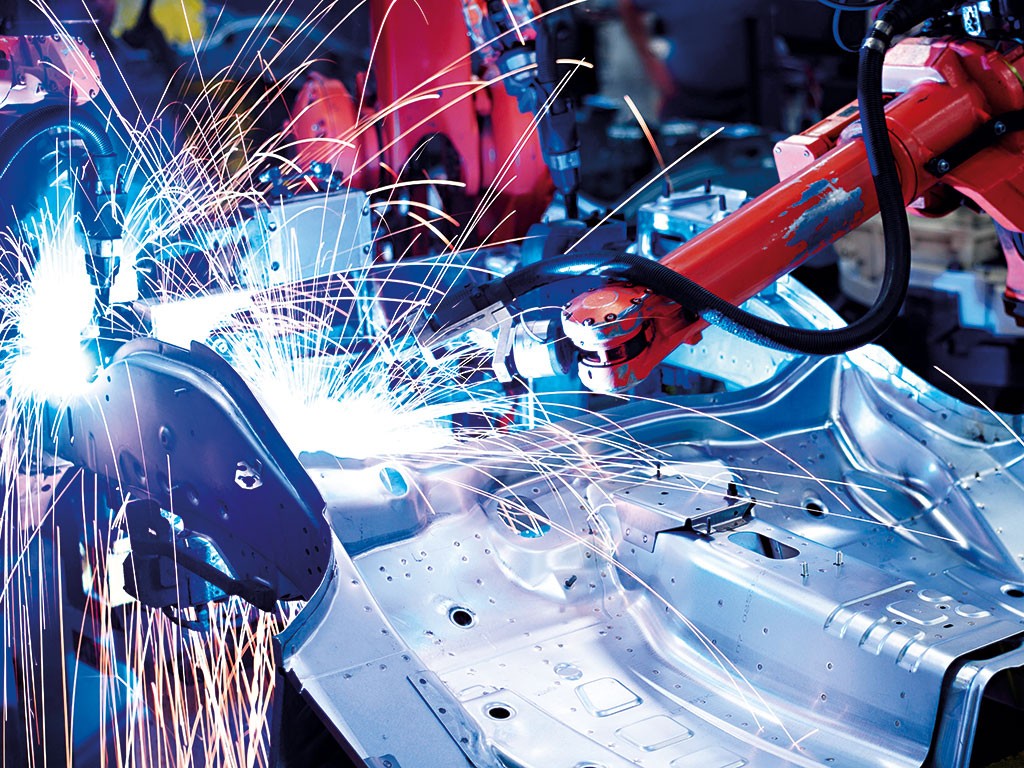China leads way in manufacturing, but lags in innovation
Emerging economies set to dominate global manufacturing output, but they need to do more to free up innovation

A worker sprays paint under a cloverleaf junction in Shanghai
While China powers ahead of other countries in their manufacturing output, they, and other emerging economies, are failing to keep up with the investment in talent and innovation that will ultimately provide a more stable manufacturing economy.
According to research by Deloitte, maintaining a skilled, talented workforce is the key driver in sustaining a country’s manufacturing competitiveness, but emerging economies are investing more in scale of output than the sorts of drivers that more developed nations rely upon.
In Deloitte’s 2013 Global Manufacturing Competitiveness Index, they found that China ranked number one, yet again, and that over the next five years other emerging markets, including India and Brazil, will overtake Germany and the US as the leading countries in the hugely competitive manufacturing industry. However, Germany and the US lead China in their investment in innovation and helping talent succeed.
The report says: “At the country level, executives participating in the 2013 GMCI survey see developed nations, such as Germany and the US, as the most competitive nations with respect to their ability to promote talent and innovation.
“This is especially interesting when looking at specific talent and innovation metrics, which might signify that although Germany and the US have strong Innovation Index scores, countries — such as South Korea and Singapore — are very competitive on multiple measures like researchers per million population and basic math and science test scores.”
Deloitte say that economies like South Korea and Singapore will likely surge ahead of more developed nations, because of their focus on training their workforce and investing in science education. This is reflected in recently released FDI figures, which show that 2012 saw a decline of total inflow drop by 3.7 percent to £111.72bn, the first decline since 2009.
Manufacturing was particularly hit, with a drop of 6.2 percent, with much of this FDI being directed at other emerging economies like South Korea, Singapore and Taiwan.
While the index shows how important China’s manufacturing industry has been to sustaining remarkable economic growth, it also shows that the country has a lot of work to do in promoting innovation. There are signs, however, that it is beginning to do just that.
The report adds: “In China, policies either encouraging or directly funding investments in science and technology, employee education, infrastructure development along with safety and health regulations and sustainability polices are helping to provide a competitive advantage, according to Chinese executives surveyed.”
However, there is concern that China’s somewhat lax policy towards intellectual property, not to mention its strict control over what types of research is carried out, is believed to be stifling the sort of serious innovation that has allowed Germany, the US and Japan to succeed.
While more open economies like the US and South Korea have allowed businesses to heavily research all manners of innovative manufacturing ideas, it is difficult to see such companies emerging from a China that greatly restricts what can or cannot be researched.
Executives say that tight regulations, as well as antitrust laws, means that they are struggling to compete with the innovations of more open economies, although they benefit from the sheer scale of the Chinese market.
What the country needs to do is allow its workers the freedom to innovate, so that they help to manufacture the leading technologies of tomorrow, rather than the cheaper versions of well-known international products.













